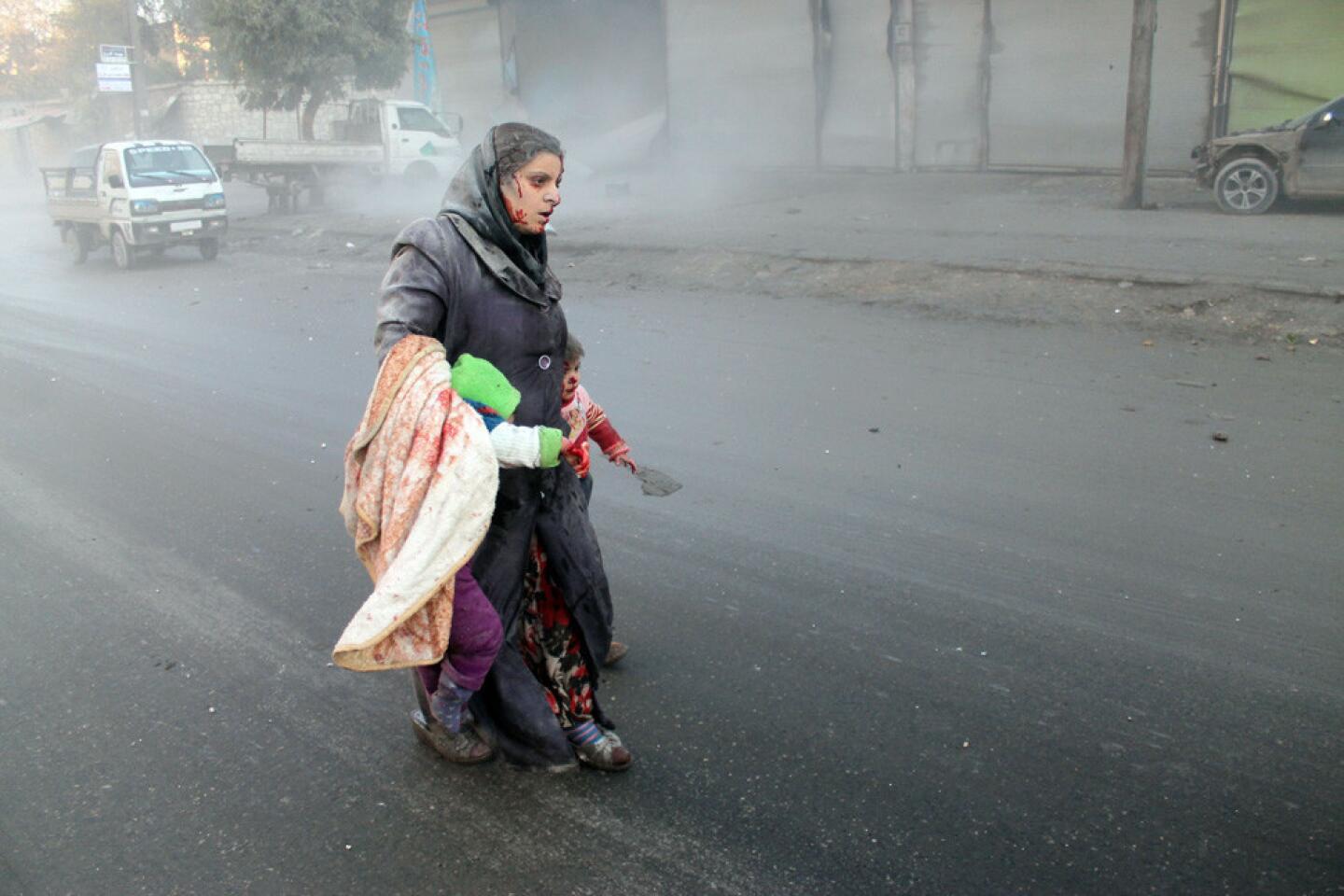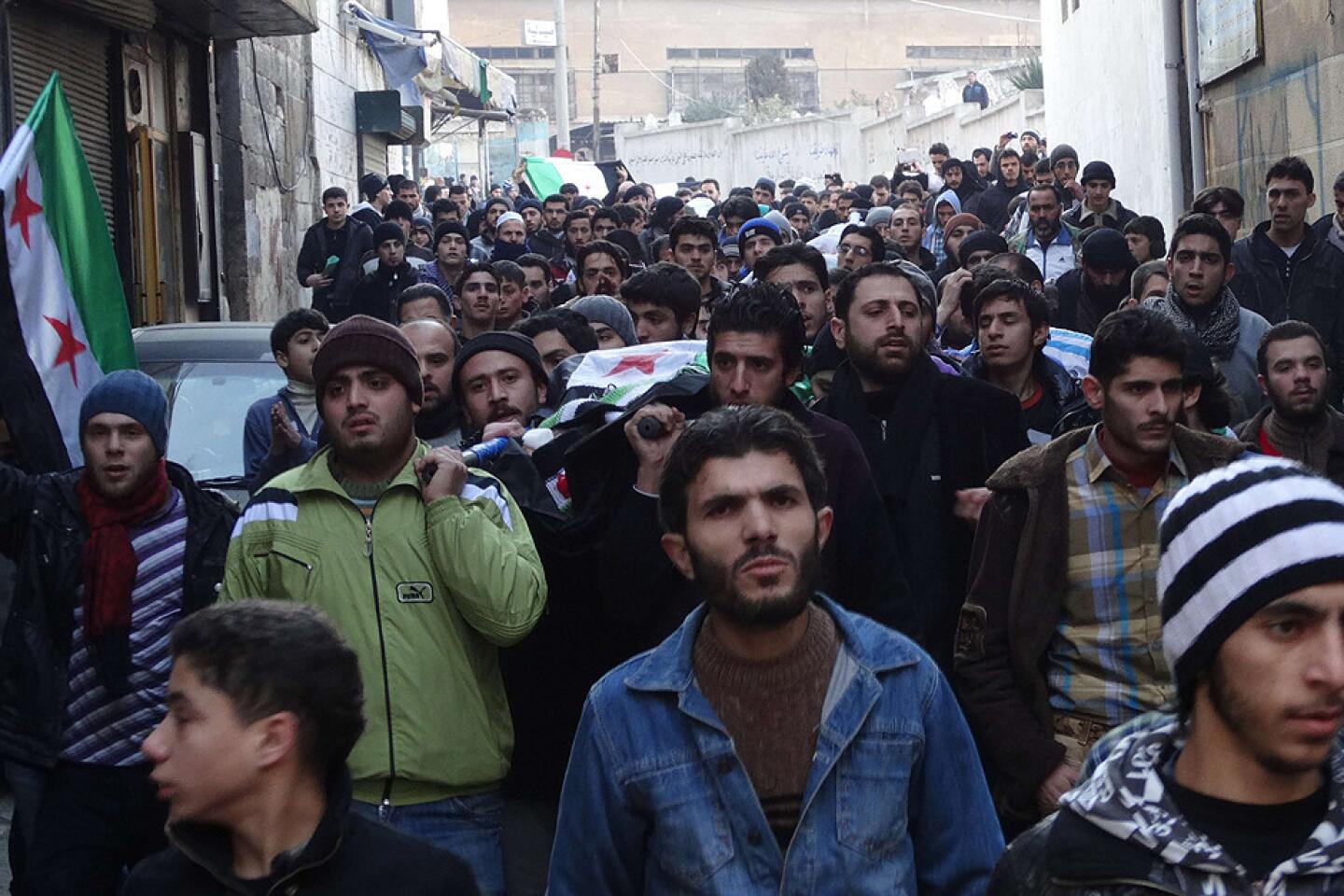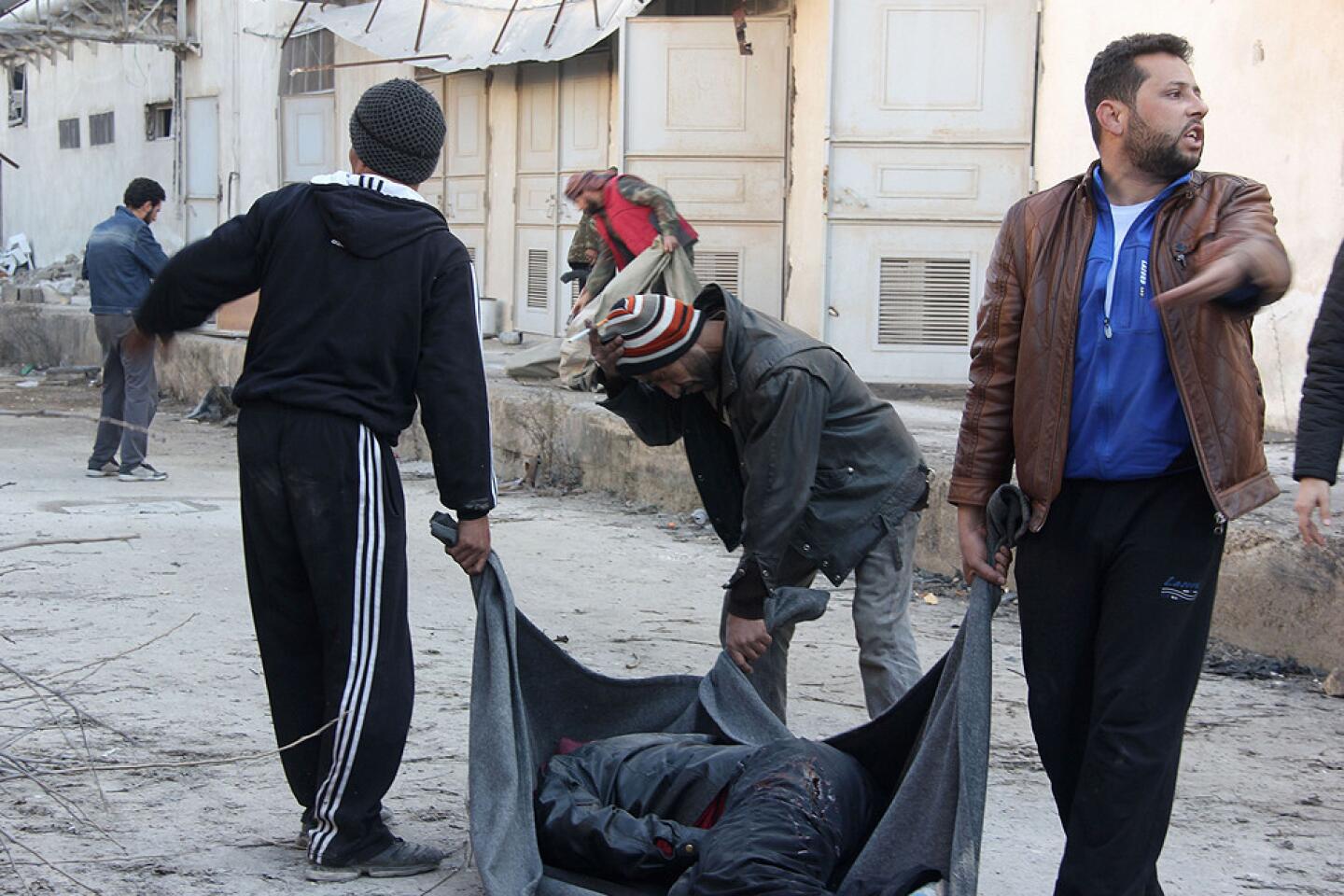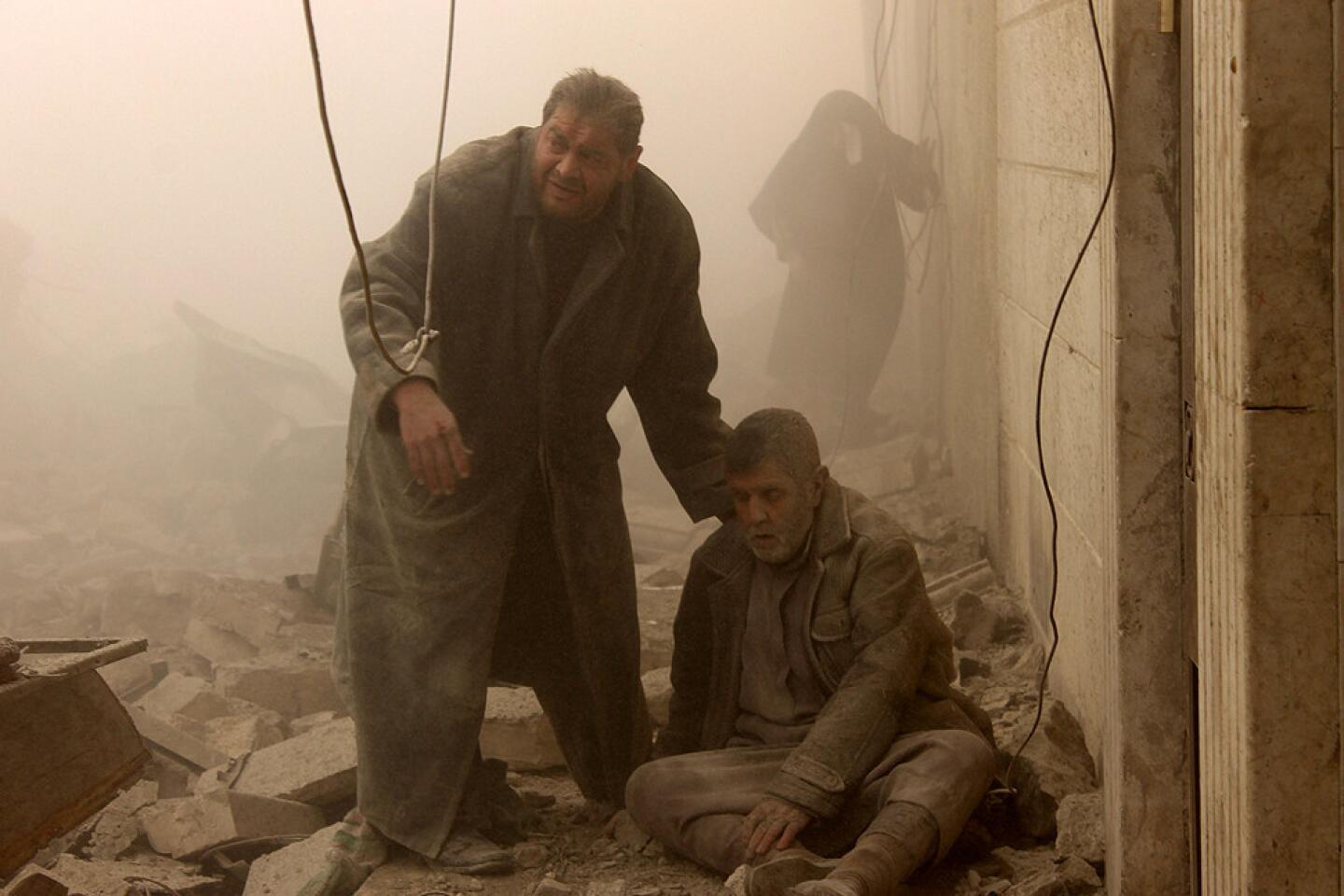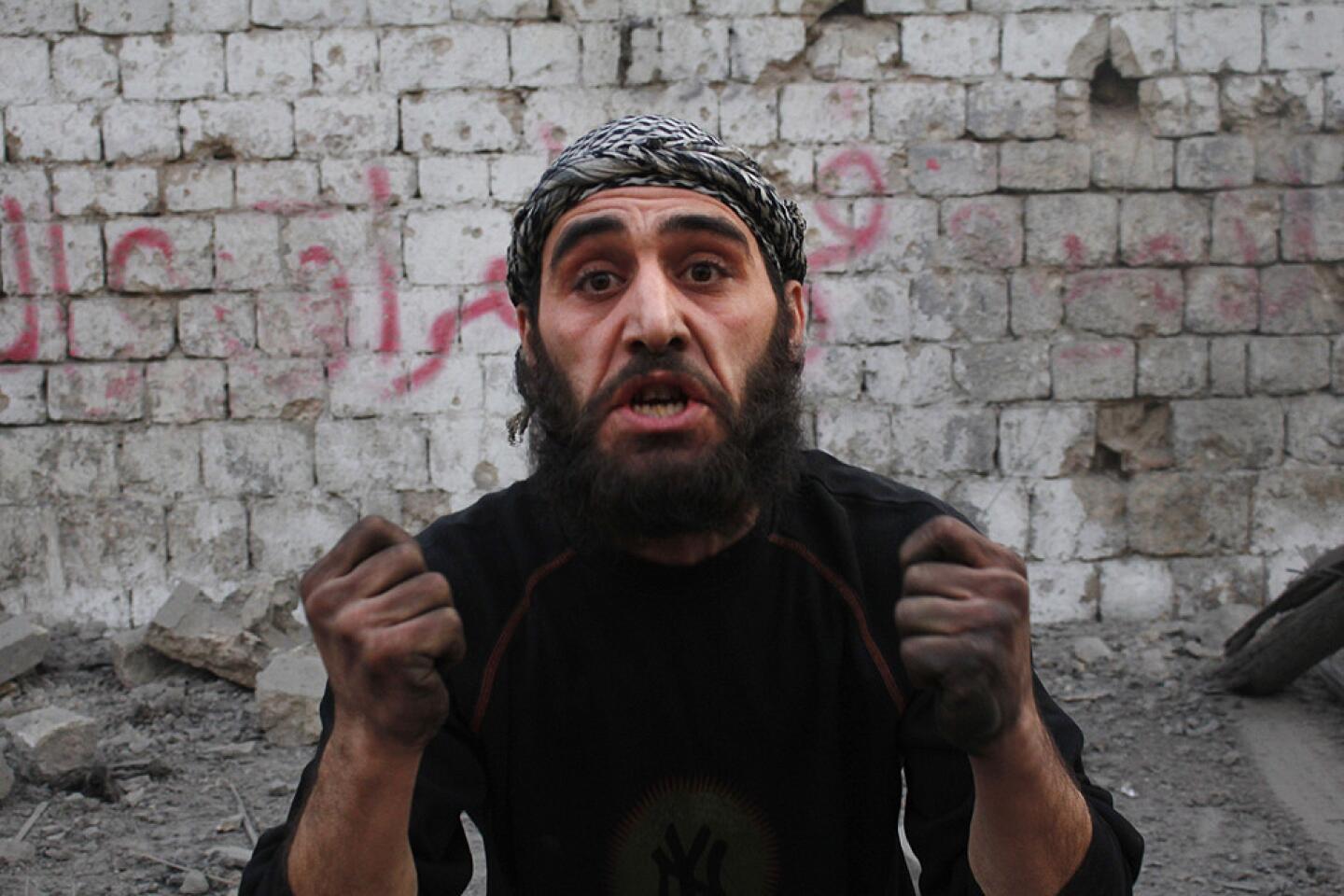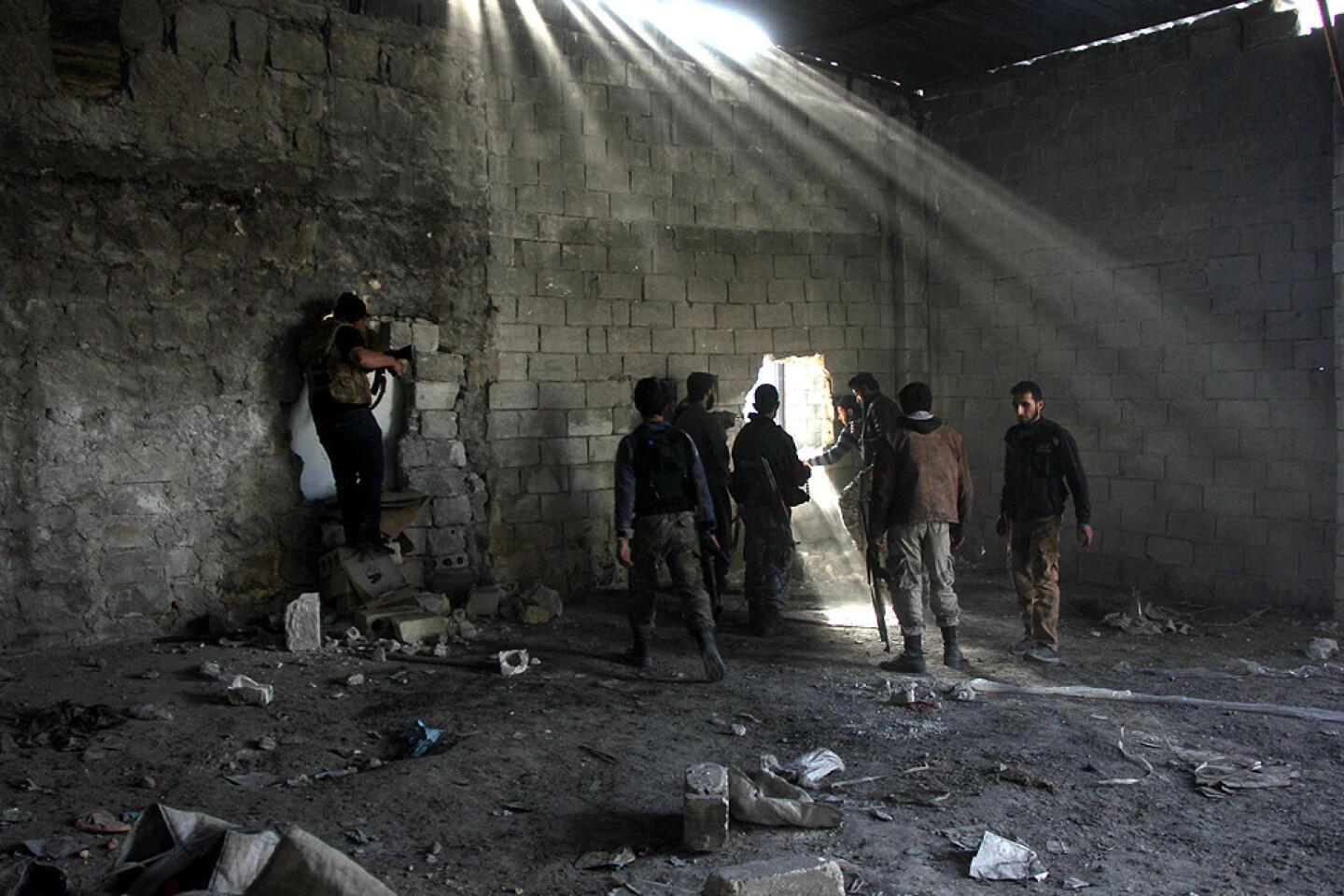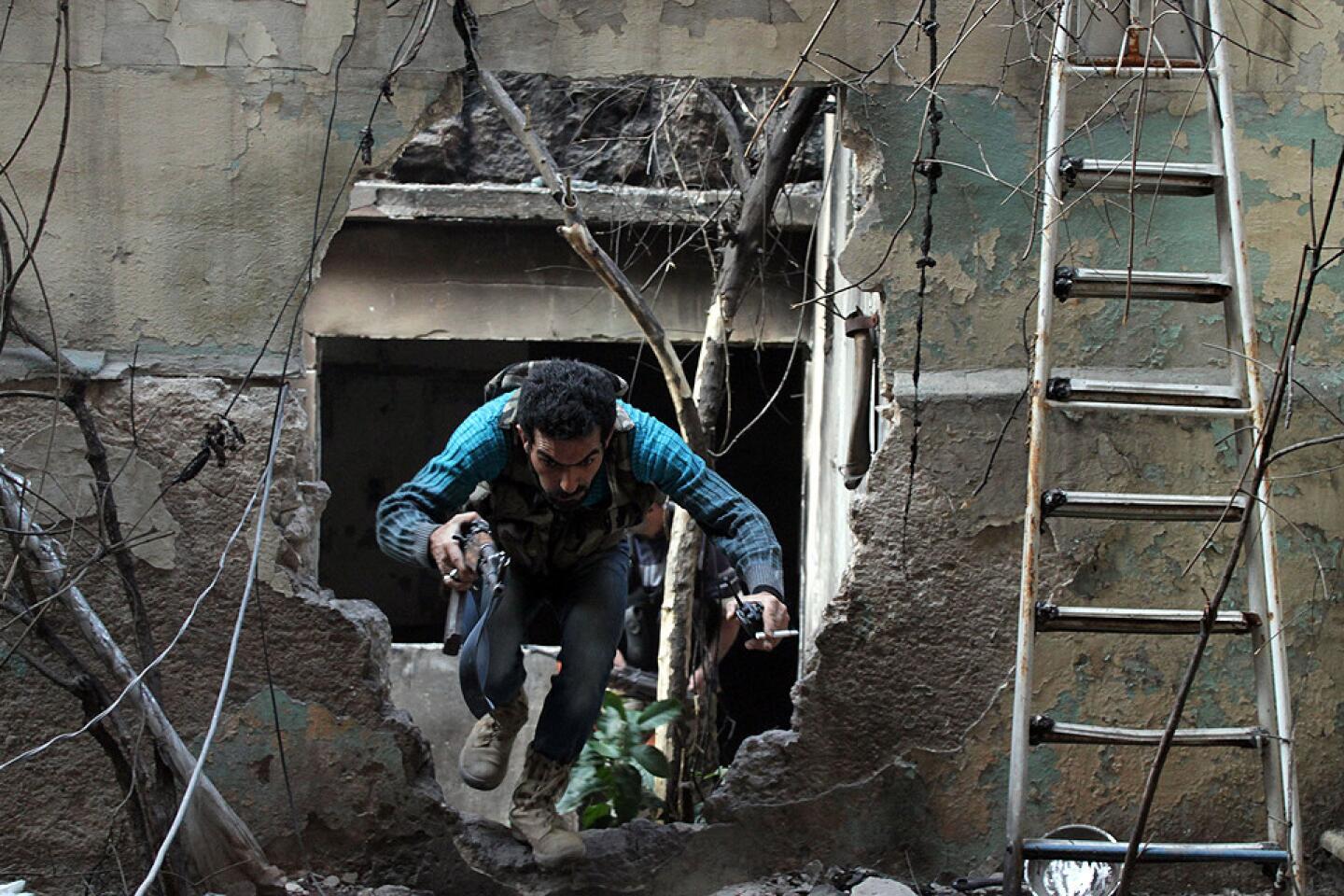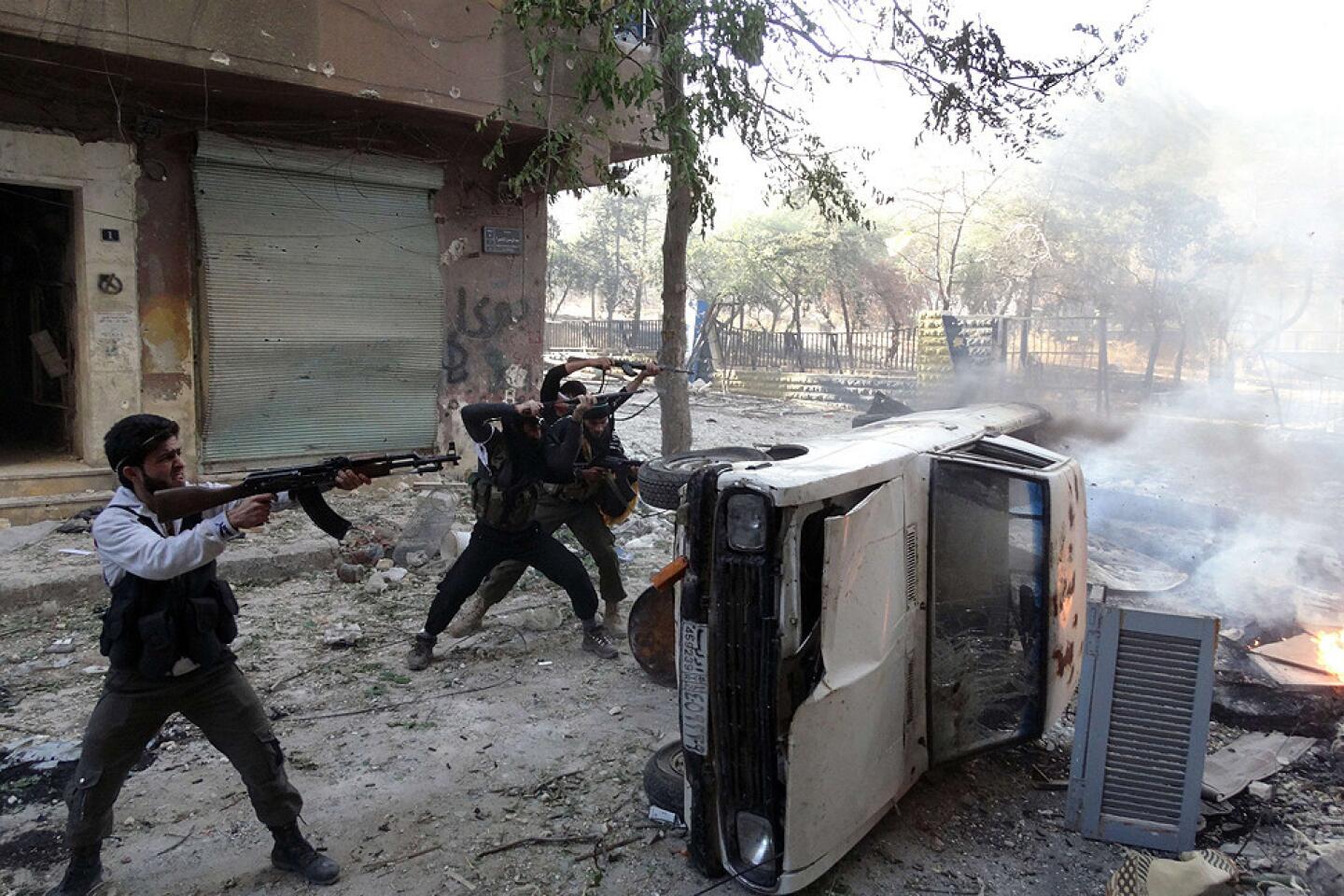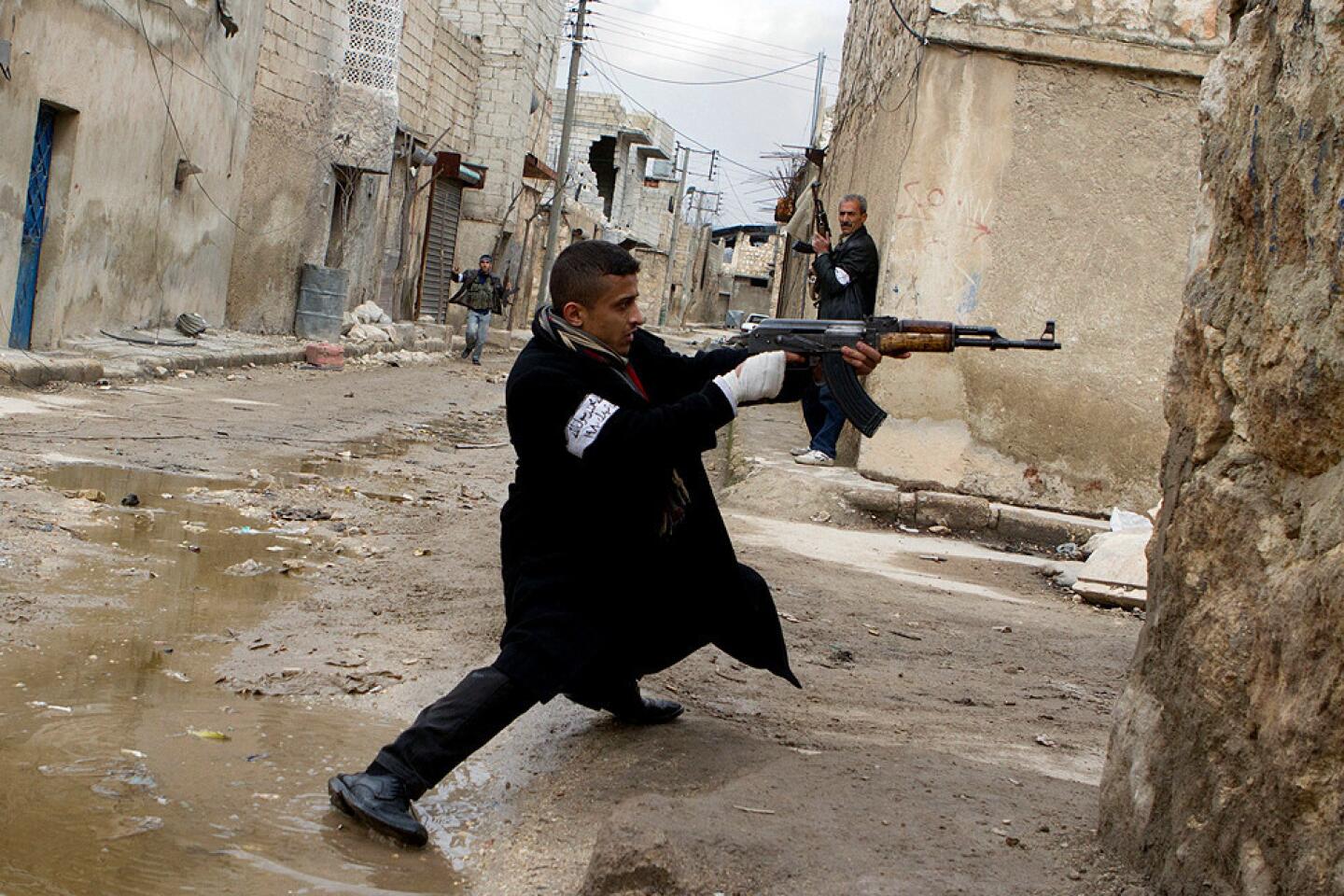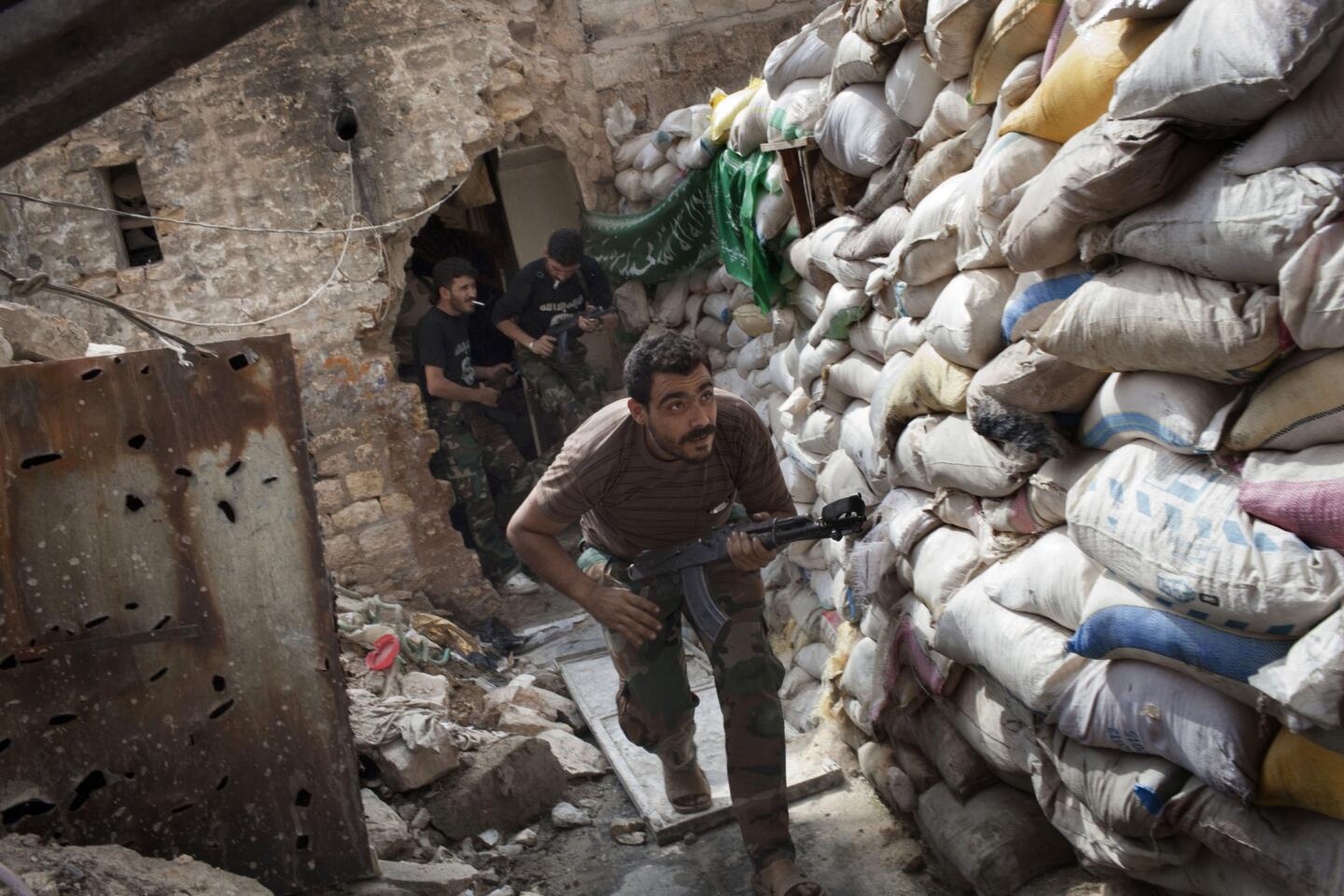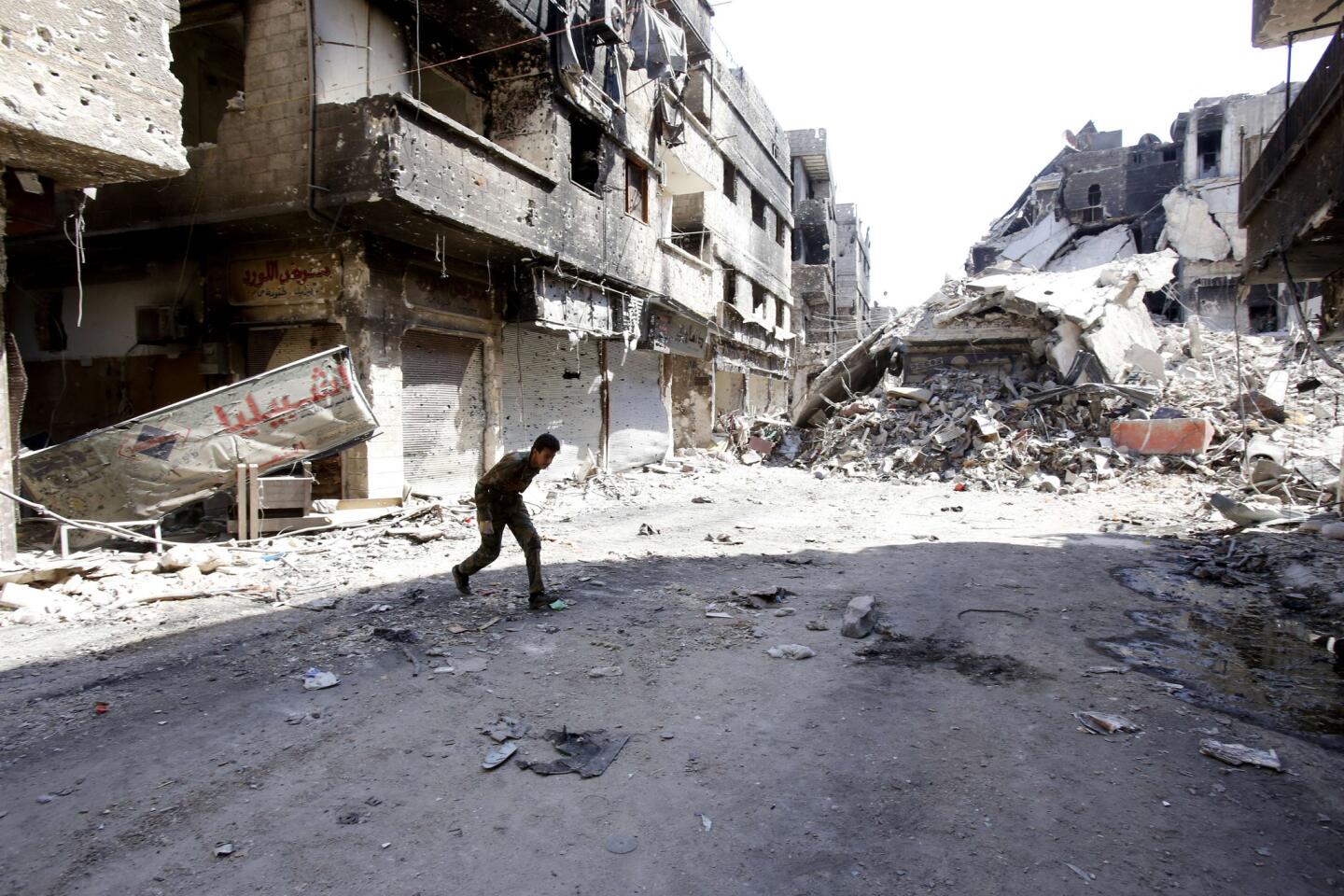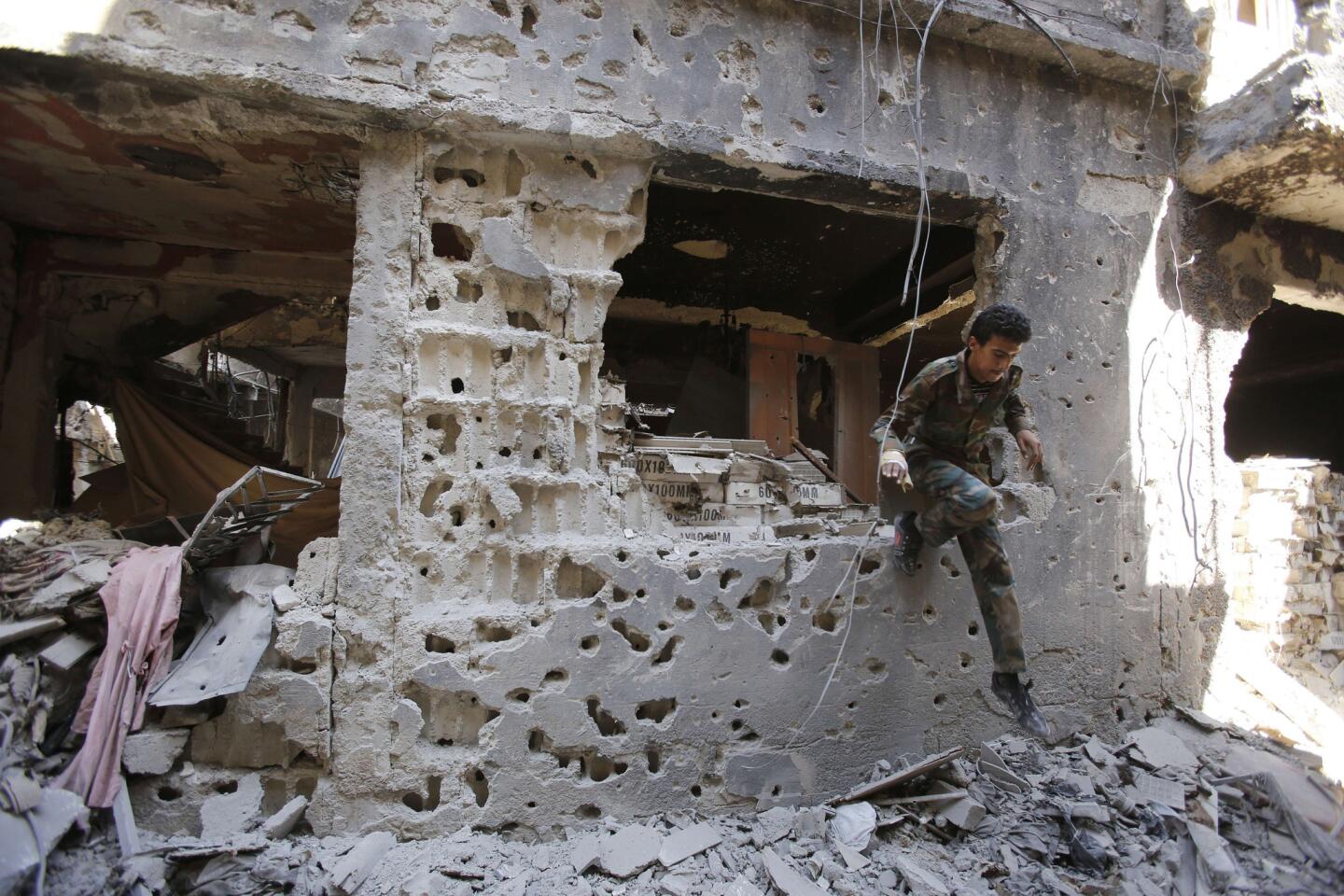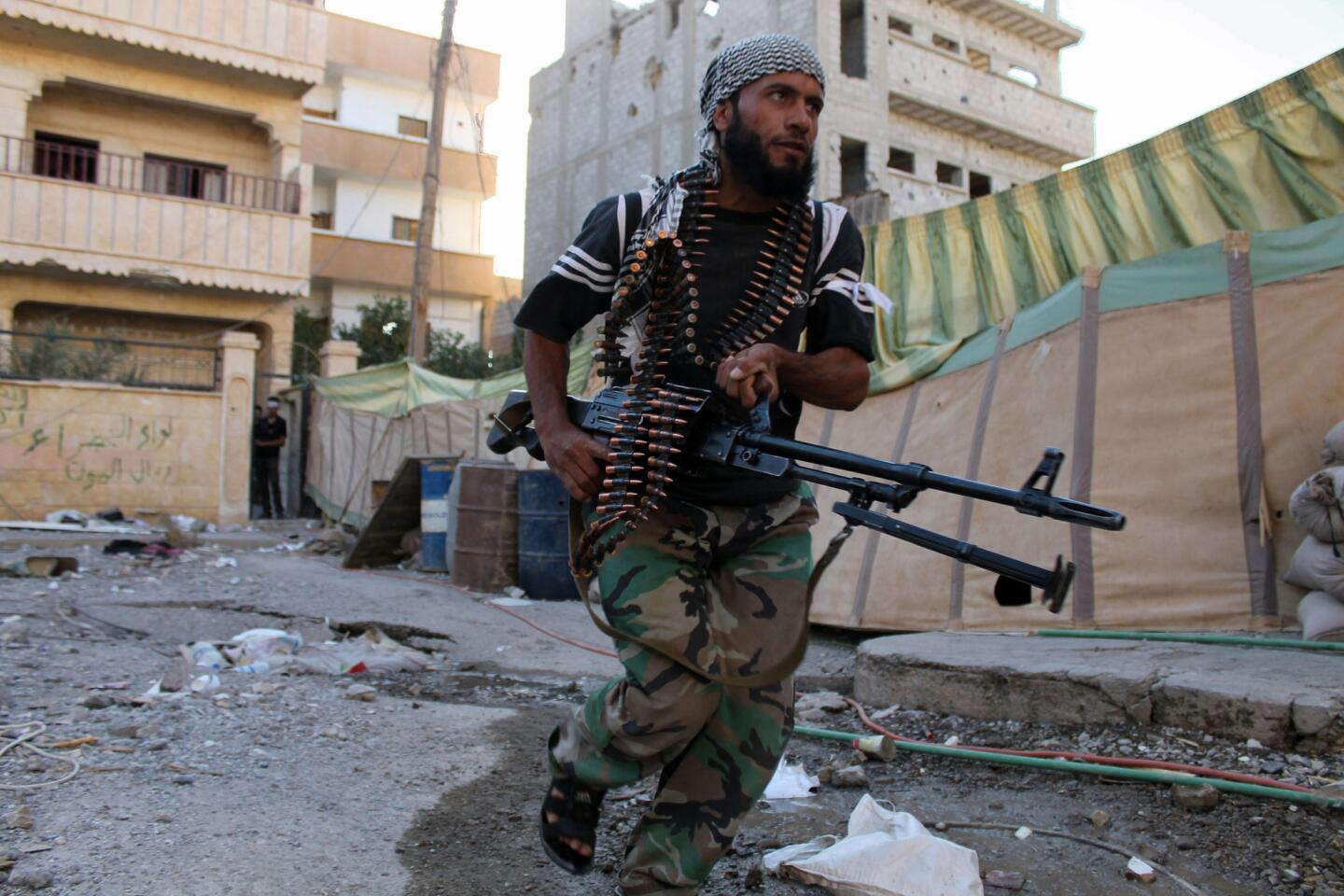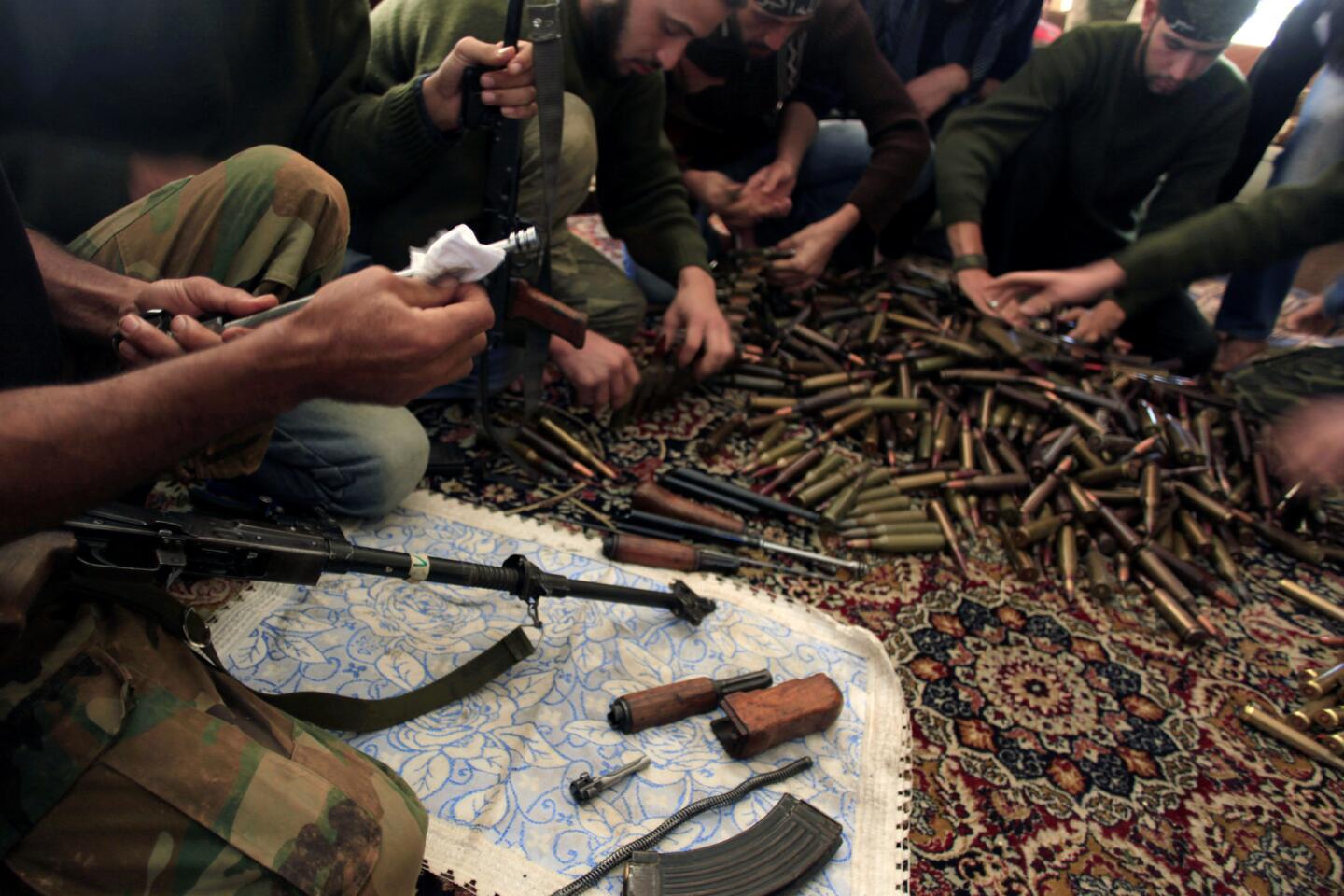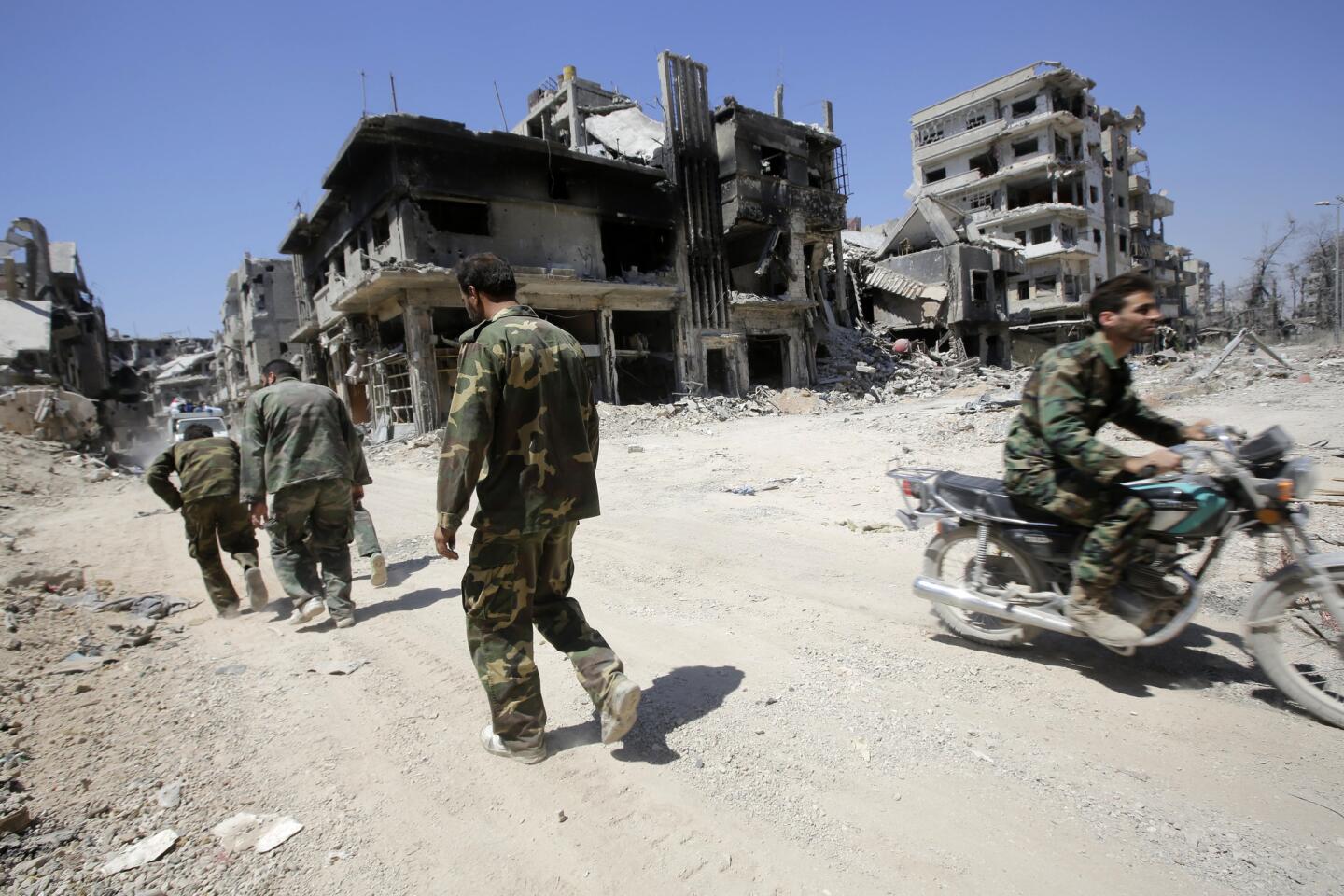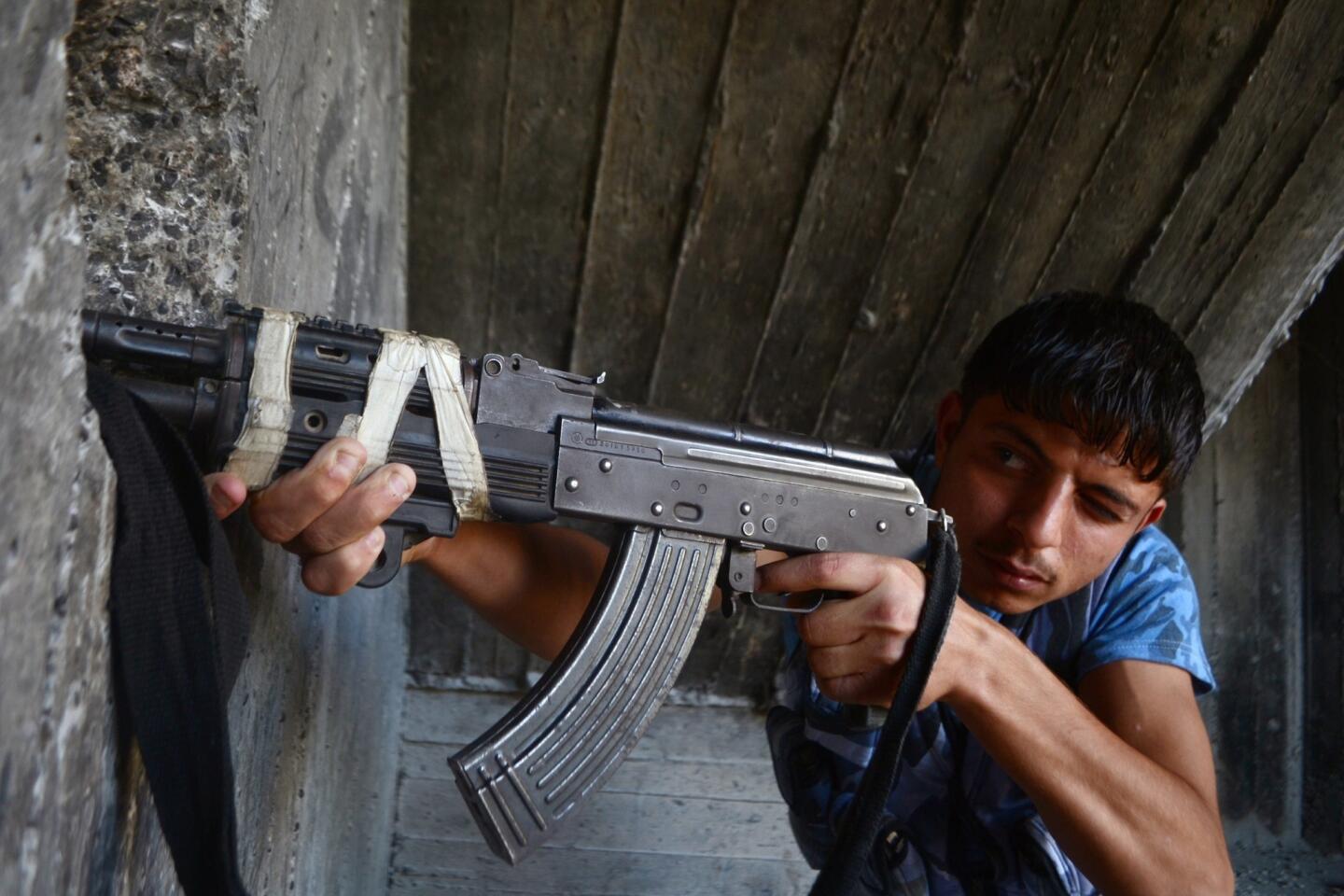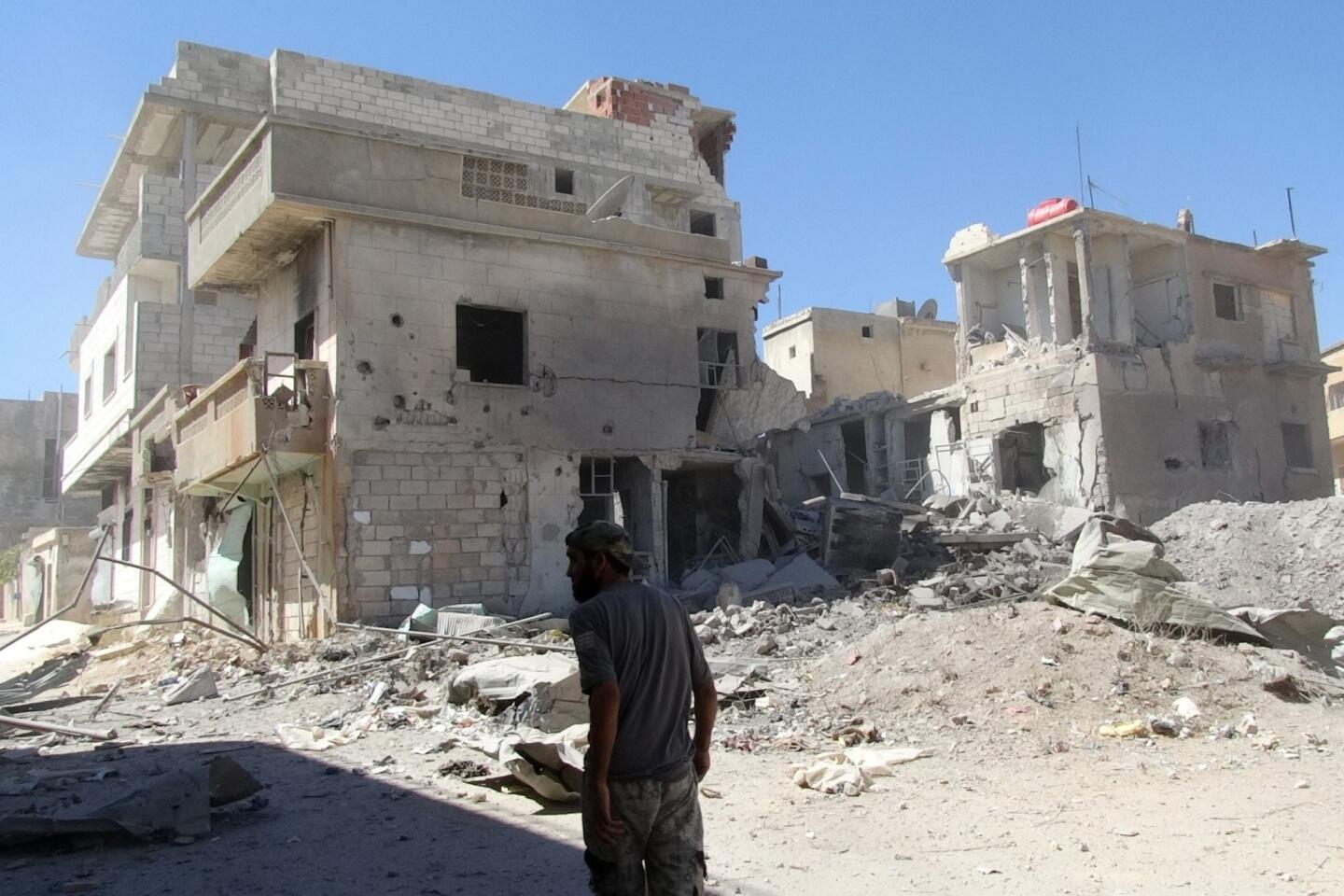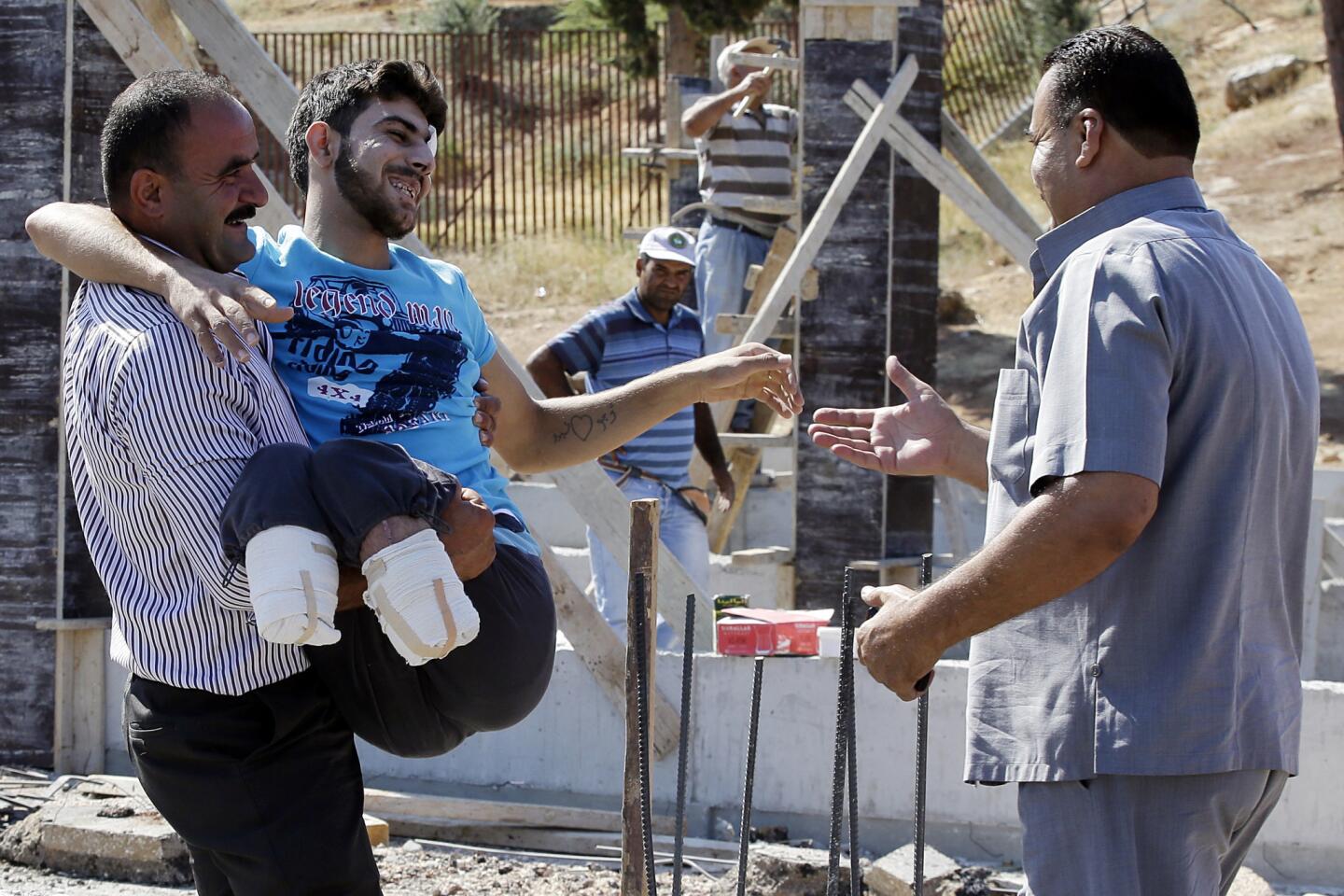Obama calls for Syria’s Assad to be held accountable
- Share via
WASHINGTON – In an address to the nation Tuesday, President Obama made his case for holding Syrian President Bashar Assad accountable for an alleged nerve gas attack that U.S. officials say killed more than 1,400 people, some while they slept, in suburbs outside Damascus.
Obama called the Aug. 21 attack a “crime against humanity” that violated international law.
“On that terrible night, the world saw in gruesome detail the terrible nature of chemical weapons,” Obama said, adding that the attack convinced him the U.S. must respond with military force. “These things happened, the facts cannot be denied.... The question now is what the United States of America and the international community is prepared to do about it.”
In his first prime-time address from the White House in more than two years, Obama found himself unexpectedly tasked with a dual challenge: bolstering public support for his decision to launch military strikes against the Assad government while explaining his decision to pursue a diplomatic alternative.
The almost contradictory messages reflected the unsettled state of affairs in the standoff with Syria over the alleged chemical attack. The White House and U.S. allies worked quickly Tuesday to explore the viability of a proposal made by Russian on Monday to put Syria’s chemical weapons stockpiles under international control.
The Obama administration said it was skeptical that Assad’s government would follow through with the plan. Still, in a meeting with senators on Capitol Hill, Obama asked lawmakers to give him time to sort through the options, and Senate leaders, in a sign of the deep reluctance to endorse the president’s push for another military intervention, readily complied.
But the president’s speech from the East Room was announced before Russia’s plan emerged. While diplomats in Paris, Damascus, Moscow and Washington worked through the details – running into early signs of the difficulty of crafting a workable plan – Obama continued his public relations campaign.
The speech, which aides rewrote on the fly Tuesday, was designed as the keynote of a week of meetings, briefings, speeches and phone calls aimed at lawmakers whose support Obama needs in his pursuit of congressional authorization for a punitive strike against Syria.
With polls showing Americans opposed to a strike by roughly a 2-1 margin, the White House sought to convince lawmakers to buck public opinion and back the president on a vote some say could determine the future of his presidency and U.S. credibility abroad.
But on Capitol Hill, resistance to entering another war seemed to firm up with the sudden appearance of the Russia alternative.
Senate Majority Leader Harry Reid (D-Nev.) indefinitely postponed an initial vote on an authorization resolution approved by the Foreign Relations Committee last week. Reid said he would be satisfied with a diplomatic solution. “I’m not a blood-and-thunder guy. I’m not for shock and awe,” he said.
Meanwhile, key senators began to draft language that would incorporate the Russian offer, perhaps authorizing force only if Syria refused to allow an outside entity, most likely the United Nations, to secure its chemical weapons stockpile. It could also require a U.N. resolution condemning Syria for using chemical weapons on its own people.
Sen. Carl Levin (D-Mich.), chairman of the Armed Services Committee, emphasized that the resolution was still being crafted. But he said the goal was to eliminate the threat of Syria using chemical weapons by keeping open the possibility of force, “like the Sword of Damocles over Assad.”
“It’s because of the threat of a strike by the president, because of the possibility that Congress would authorize it, that there’s movement at the U.N. So you’ve got to find a way to keep that pressure on. That’s the key to success at the U.N.,” Levin said.
The president told Democrats he needed a number of days to pursue the diplomatic channels. But he “was not overly optimistic,” said Sen. Richard Durbin (D-Ill.), the assistant majority leader.
“What he’s basically asked is for some time to work this out,” Durbin said, a time frame that would delay any action until next week. “I think that’s reasonable. We want this to end well, we want the end of chemical weapons in Syria. And if we can achieve that through the president’s threatened use of military force, that’s a good thing for safety in the world.”
The European Union, wary of military action, warmed to the Russian proposal, as its top diplomat urged quick work on the nettlesome details involving the verification and destruction of the arsenal. Support from the EU, with 28 member nations, added to the diplomatic momentum behind the idea.
Obama, along with his French and British counterparts, agreed Tuesday to explore the proposal with Russia and China, Syria’s allies on the U.N. Security Council. The latter have used their veto power to block previous punitive measures targeting Assad’s government.
But Obama and his allies almost immediately ran into conflict with Russia, which demanded that the U.S. should forswear any threat to use force as part of a deal. Moscow also insisted that the Security Council should not be asked to implement the program under Chapter VII of the U.N. Charter, which authorizes the use of force, and proposed instead use of a much weaker tool, a “presidential statement.”
Russian officials have been deeply resistant to even weak Security Council resolutions concerning the Syrian civil war, fearing that they could open the way to an international military force.
Skeptical of the plan already, administration officials warned Tuesday that the Russian proposal could disintegrate under such demands before the end of the week.
The plan “has to have consequences if games are played, or if somebody tries to undermine this,” Secretary of State John F. Kerry said during a Google+ Hangout conversation on the subject.
British Prime Minister David Cameron told lawmakers the proposal needs to come before the Security Council as a resolution that includes a timetable, process and consequences if Syria reneges.
“What’s important is to make sure this isn’t some delay tactic, that this isn’t some ruse,” he said.
Kerry said U.S. officials have stressed to the Russians that “this must be done quickly.”
Still, Russian Foreign Minister Sergei Lavrov said he was working with Syria to draft a proposal and planned to deliver it soon to U.N. Secretary-General Ban-ki Moon. And the Syrian government said it was serious about the Russian plan precisely because it could prevent a U.S. military strike.
“We agreed with the Russian initiative, proceeding from the understanding that it must cut the ground from under the feet of the U.S. aggression against our country,” Syrian Foreign Minister Walid Moallem said during a meeting with the speaker of Russia’s lower house of parliament, Sergei Naryshkin.
If Obama ends up rejecting the Russian proposal, he could be forced to resume his effort to win congressional authorization for a strike.
On Capitol Hill, the president’s threat to strike Syria continued to draw new opposition, including Senate Minority Leader Mitch McConnell (R-Ky.), whose decision conflicts with the support offered by House Speaker John A. Boehner (R-Ohio), who reaffirmed his support for military action.
“I believe it’s important to try to help the president provide a unified front,” Boehner said, even as he made a nod to his own problems rounding up votes. “It’s a very difficult issue for Congress.”
The split between the two top GOP leaders in Congress comes as McConnell, who is running for reelection next year, aligned himself with the tea party wing of the GOP, which has gained influence at the expense of traditional defense hawks. McConnell said he did not believe limited strikes would deter Assad from using chemical weapons.
The two Republicans both raised concerns about the Russian proposal. Boehner said he was skeptical because of the “actors that are involved,” but McConnell said it was “worth exploring.”
Times staff writers Henry Chu in London, Sergei L. Loiko in Moscow, Lisa Mascaro and Kathleen Hennessey in Washington and special correspondent Kim Willsher in Paris contributed to this report.
ALSO:
1 in 4 men surveyed in Asia-Pacific say they committed rape
Voice of Iran hostage crisis tapped as VP, environmental advocate
Egypt bans thousands of unlicensed preachers from giving sermons[email protected]
Twitter: @cparsons
[email protected]
Twitter: @mikememoli
[email protected]
Twitter: @richtpau
More to Read
Sign up for Essential California
The most important California stories and recommendations in your inbox every morning.
You may occasionally receive promotional content from the Los Angeles Times.
